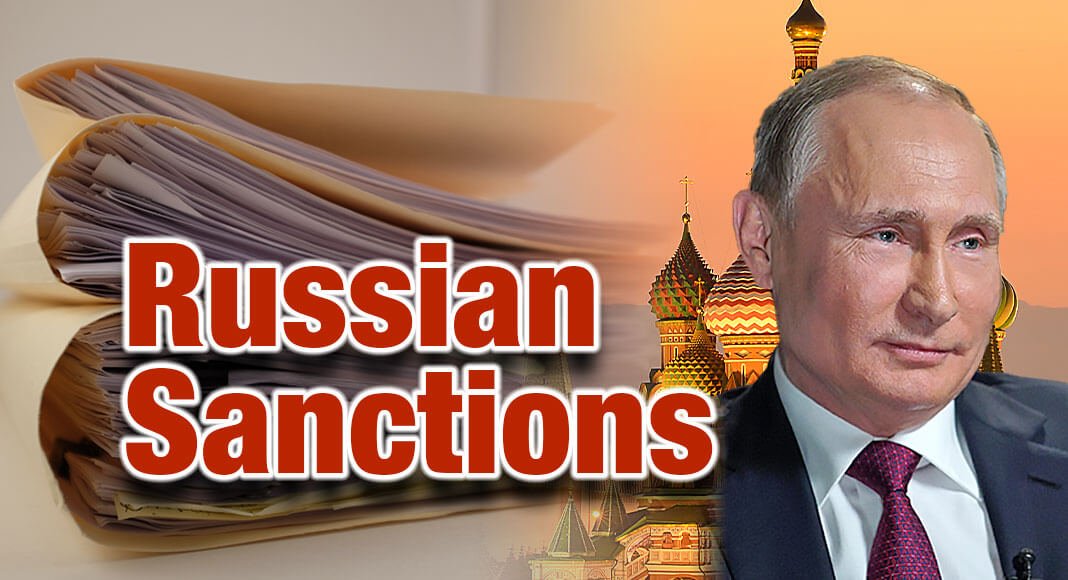
Texas Border Business
WASHINGTON – In response to the Russian Federation’s further invasion of Ukraine, the Bureau of Industry and Security has issued a final rule, “Implementation of Sanctions Against Russia Under the Export Administration Regulations (EAR),” which implements new Russia license requirements and licensing policies to protect U.S. national security and foreign policy interests.
This fact sheet provides a general overview and summary of the actions being implemented in the rule. Readers should review the final rule in its entirety for all relevant requirements. This final rule builds on existing restrictions on exports to Russia and implements the following major policies specific to Russia and Russian end-users:
1. Imposes new Commerce Control List (CCL)-based license requirements for Russia.
This final rule adds new license requirements for all Export Control Classification Numbers (ECCNs) in Categories 3-9 of the CCL. Certain of these items, in 58 ECCNs with unilateral controls, were not previously controlled to Russia and include microelectronics, telecommunications items, sensors, navigation equipment, avionics, marine equipment, and aircraft components. BIS’s restrictions should significantly impact Russia’s ability to acquire items it cannot produce itself.
2. Applies a review policy of denial to license applications for exports, reexports to or transfers within Russia.
Under the stringent licensing review policy being implemented, applications for the export, reexport, or transfer (in-country) of items that require a license for Russia will be reviewed, with certain limited exceptions, under a policy of denial. The categories reviewed on a case-by-case basis are applications related to safety of flight, maritime safety, humanitarian needs, government space cooperation, civil telecommunications infrastructure, government-to-government activities, and to support limited operations of partner country companies in Russia.
3. Expands the existing Russia ‘military end use’ and ‘military end user’ control scope to all items subject to the EAR.
With this final rule, restrictions on Russian ‘military end users’ and ‘military end uses’ cover all items subject to the EAR with exceptions for: (i) food and medicine designated as EAR99; and (ii) items classified as ECCN 5A992.c or 5D992.c, so long as they are not for Russian “government end users” or Russian state-owned enterprises.
4. Adds two new Foreign Direct Product (FDP) Rules specific to Russia and Russian ‘military end users.’
- Creates a new FDP rule for all of Russia (“Russia FDP rule”). To restrict Russia’s ability to acquire certain foreign-produced items, the Russia FDP rule establishes a control over foreign-produced items that are: (i) the direct product of certain U.S.-origin software or technology subject to the EAR; or (ii) produced by certain plants or major components thereof which are themselves the direct product of certain U.S.-origin software or technology subject to the EAR. This control applies when it is known that the foreign-produced item is destined to Russia or will be incorporated into or used in the production or development of any part, component, or equipment produced in or destined to Russia. The Russia FDP rule does not apply to foreign-produced items that would be designated as EAR99 (items not listed on the CCL), which includes many consumer items used by the Russian people.
- Creates a new foreign direct product rule for Russian military end users (“Russia-MEU FDP rule”). The Russia-MEU FDP rule is more extensive than the Russia FDP rule and applies to foreign-produced items that are: (i) the direct product of any software or technology subject to the EAR that is on the CCL; or (ii) produced by certain plants or major components thereof which are themselves the direct product of any U.S.-origin software or technology on the CCL. Such items will be subject to the EAR and require a license if an entity with a footnote 3 designation on the Entity List is a party to the transaction, or if there is knowledge that the item will be incorporated into or used in the production or development of any part, component, or equipment produced, purchased, or ordered by any entity with a footnote 3 designation (which is established in this rule and described below) on the Entity List. These restrictions apply to all items, including those designated EAR99, with certain exceptions, and impose a license requirement for footnote 3-designated Russian military end users.
- Partner Country Exclusion from Russia and Russia-MEU FDP rules. Certain partner countries that are adopting or have expressed intent to adopt substantially similar measures are not or will not be subject to the Russia and Russia-MEU FDP rules. Exports, reexports, and transfers (in-country) from the following countries are not subject to these rules: Australia, Austria, Belgium, Bulgaria, Canada, Croatia, Cyprus, Czech Republic, Denmark, Estonia, Finland, France, Germany, Greece, Hungary, Ireland, Italy, Japan, Latvia, Lithuania, Luxembourg, Malta, the Netherlands, New Zealand, Poland, Portugal, Romania, Slovakia, Slovenia, Spain, Sweden, and the United Kingdom.
5. Significantly restricts the use of EAR license exceptions for Russia exports, reexports and transfers (in-country).
Only certain sections of the following license exceptions are available for exports to Russia:
- TMP (Temporary Imports, Exports, Reexports, and Transfers in Country), for items for use by the news media;
- GOV, for certain government activities;
- TSU (Technology and Software Unrestricted), for software updates to civil end users that are subsidiaries of, or joint ventures with, companies headquartered in the United States or partner countries;
- BAG (Baggage), for baggage, excluding firearms and ammunition;
- AVS (Aircraft, Vessels, and Spacecraft), for aircraft flying into and out of Russia;
- ENC (Encryption Commodities, Software, and Technology), for encryption items, but not if they are destined for Russian ‘government end users’ and Russian state-owned enterprises; and
- CCD (Consumer Communication Devices), for consumer communication devices, but not if they are destined for government end users or certain individuals associated with the government.
6. Applies the Entity List footnote 3 designation and adds 49 entities.
As described above, Entity List footnote 3 indicates that the Russia-MEU FDP rule applies to that entity. Thus, a license is required to export, reexport, or transfer (in-country) all items subject to the EAR (including foreign-produced items under the Russia-MEU FDP rule) to these entities, with limited exceptions. Footnote 3 also applies to the Russian Ministry of Defence, including the Armed Forces of Russia, wherever located. License applications for footnote 3-designated entities will be reviewed under a policy of denial in all cases.
A total of forty-seven entities are being transferred from the MEU List to the Entity List and are being designated with footnote 3. In addition, BIS is adding two new Russian MEUs to the Entity List with a footnote 3 designation. Additional entities may be added in the future.














